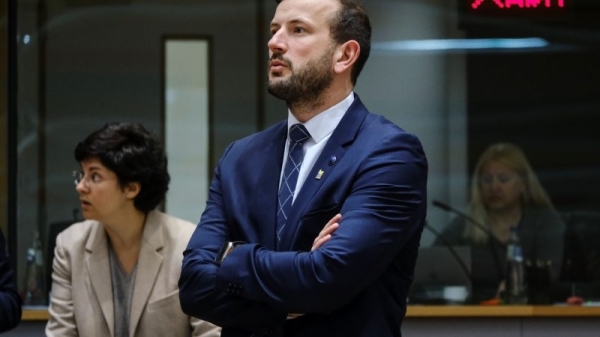Environment ministers rally to save nature restoration law – but Hungary remains defiant

14 countries including Germany, France, and Spain called for a quick adoption of the EU’s flagship nature protection policy during today’s (Monday 25 March) Environmental Council meeting in Brussels. But opponents of the law – including Hungary who joined their ranks last week – remain defiant.
Ambassador David Brozina declared that Slovenia was “astonished” by last-minute opposition to the proposal, noting that the law’s ambition was so reduced during negotiations ‘’that even the (European) parliament could accept it.”
Multiple ministers took the floor to argue in favour of the proposal urging the Belgian Presidency of the EU Council to swiftly find a way to adopt the law.
A compromise agreement was successfully negotiated, between the Council and the EU Parliament in November 2023, with EU lawmakers narrowly approving the compromise text in February.
But last week (21 March), Hungary announced they would no longer support the proposal during a final Council vote – originally scheduled to be approved today, Monday (25 March) morning.
This meant the nature restoration law no longer had enough support to survive a Council vote. The Belgian presidency of the EU Council decided to postpone the vote to avoid a rejection.
Benefits of nature restoration
Several representatives of the Council pointed out that nature protection is an essential component of efforts to mitigate and adapt to climate change, with Irish Environment Minister Eamonn Ryan saying, “You can’t do the climate bit without the nature bit.”
Other ministers focused on the immediate benefits that nature restoration will deliver to citizens. Czech Environment Minister Petr Hladík expressed incomprehension about why the law did not have sufficient support, noting that with nature restoration “We can see the benefits immediately. Even our generation will see it working.”
Other countries took a longer-term approach with France’s representative saying that if the law was not passed it would “undermine our collective responsibility vis-a-vis future generations.”
Opposition to the law remains
Hungary – whose late-minute decision to oppose the law triggered today’s crisis talks – remained defiant. Hungarian Minister of State for Environmental Affairs Anikó Raisz said the proposal “does not ensure the necessary flexibility for implementation by member states.”
Raisz pointed out Hungarian efforts to preserve biodiversity as evidence that nature protection could be achieved at the national level, without requiring European rules.
Italy and Finland also spoke out against the compromise text.
Impact on farmers
Irish environment minister Ryan declared the law an opportunity to channel new revenues to farmers, saying, “If we are abandoning the nature restoration law then we are abandoning farmers – and that would be a crying shame.”
But Raisz cited “the sensitive nature of the agriculture sector” as a key reason for Hungary’s opposition to the law. Italian Environment and Energy Security Deputy Minister Vannia Gava agreed, saying that “we cannot accept further burdens on the farming sector”.
Next steps for the law
The Belgian presidency is still committed to finding sufficient support for the law. If the proposal is not agreed before the European Elections it could prove very challenging, to revive.
[Edited by Rajnish Singh]
Read more with Euractiv




